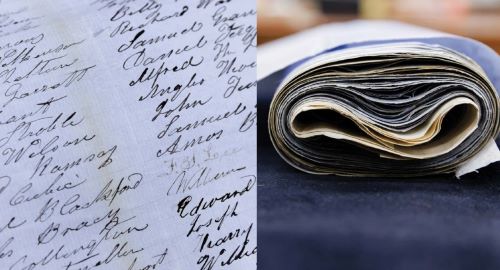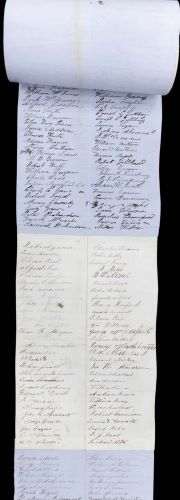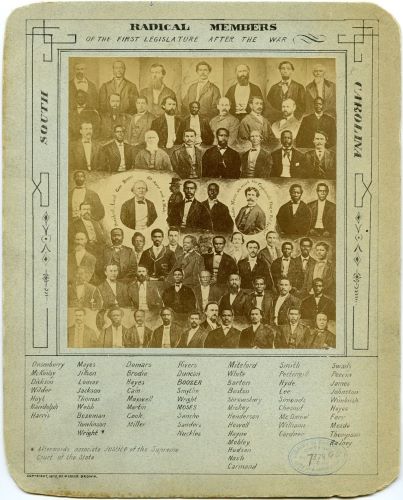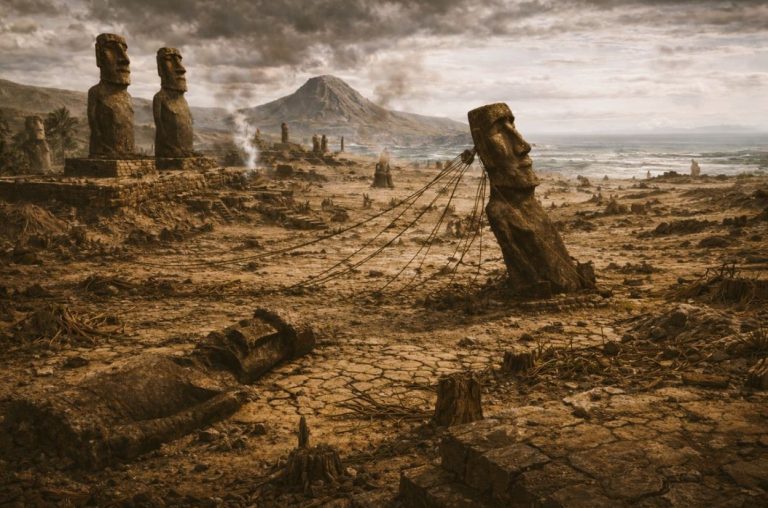

Black South Carolinians sought justice in this 54-foot-long petition.

By Dr. Michelle A. Krowl
Civil War and Reconstruction Specialist
Manuscript Division
Library of Congress
In the wake of emancipation during the Civil War, African Americans submitted petitions to government entities in greater numbers than ever before to advocate for equal treatment before the law.
One such petition, submitted by Black South Carolinians just months after the war ended, is unusual as an artifact: The introductory page containing the text addressed to the U.S. Congress is followed by individual pages of signatures glued end-to-end to form a document that is just over 54 feet in length when fully extended.
According to the Congressional Globe (the predecessor of today’s Congressional Record), on Dec. 21, 1865, Sen. Jacob Merritt Howard (R-Mich.) introduced a petition to the Senate, then meeting in the first session of the 39th Congress.

Howard noted that the petition contained 3,740 signatures of Black South Carolinians, who requested that Congress ensure that any new state constitution adopted in South Carolina following the Civil War guarantee African Americans “equal rights before the law.”
The text of the petition further advocated “that your Honorable Body will not sanction any state Constitution, which does not secure the exercise of the right of the elective franchise to all loyal citizens,” as “without this political privilige (sic) we will have no security for our personal rights and no means to secure the blessings of education to our children.”
Howard requested that the petition be referred to the Joint Committee on Reconstruction.
Little is currently known about this petition in terms of the conditions under which it was created or how it came to be part of the Justin S. Morrill Papers in the Library’s Manuscript Division.
The petition may have been created in conjunction with the “State Convention of the Colored People of South Carolina,” which met in Charleston from Nov. 20 to 25, 1865, and also produced a memorial to Congress containing different text.

Then-Rep. Justin S. Morrill (R-Vt.) served on the Joint Committee on Reconstruction, so it is possible the petition came into his possession during his committee service. Organized as part of the “Miscellany” series of the Morrill Papers, the petition seems to have been relatively little known until recently.
After Manuscript Division staff became reacquainted with it, the document was displayed as part of the National Museum of African American History and Culture’s exhibition on Reconstruction, which ended in August 2022.
The issues of race, citizenship and voting rights that would be critical during the Reconstruction period that followed the Civil War, however, continue to be relevant into the present.
The Library’s By the People crowdsourcing project is planning a transcription campaign of the document this spring, with the goal of making the signatures more discoverable and encouraging further contextual research on the signers and the petition’s creation.
Originally published by Library of Congress Magazine 12:1 (January-February 2023, 6-7) to the public domain.


